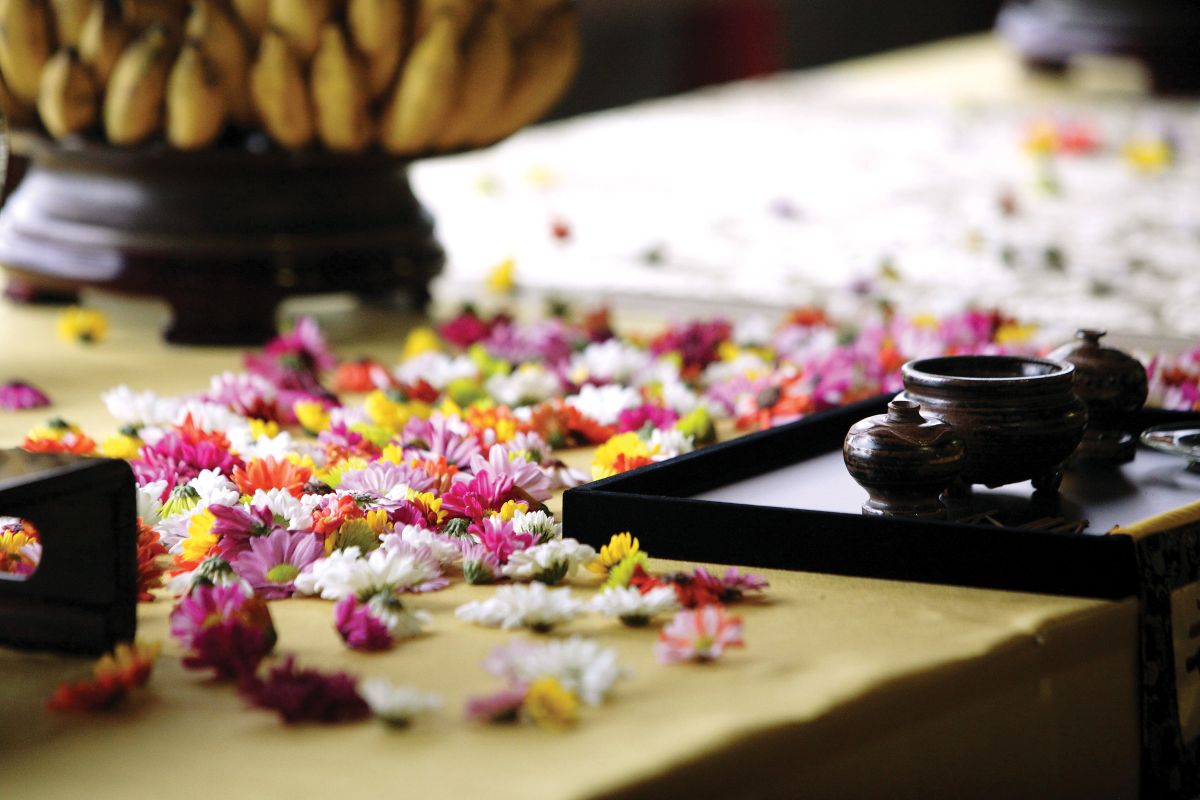Special Topics
Q2: Is Repentance Equal to Regret?
Repentance and regret are not the same. Regret means suppressing upset feelings rather than facing them or dealing with them. When accumulated over time, these negative emotions are like the dirt and mud in drain pipes that have been deposited for years without being removed; over time, they accumulate a strong stench. A sense of remorse for continuing to make mistakes and dwelling on regrets will render you restless and pose obstacles to your Dharma practice. As for repentance, Master Sheng Yen had mentioned in his book "100 Gathas of Buddhist Wisdom" that "Repentance means reflecting on the mistakes you have made, being willing to face them and take responsibility for your wrongdoings. From this moment on, you have made up your mind to correct your mistakes and not to repeat them again." This process is just like lifting a drain cover; you spot the filth and then clean it up. A drainage kept clear of silt will remain clean and unclogged. Therefore, repentance is a positive form of self-discipline and self-reflection.
As for repentance, Master Sheng Yen had mentioned in his book "100 Gathas of Buddhist Wisdom" that "Repentance means reflecting on the mistakes you have made, being willing to face them and take responsibility for your wrongdoings. From this moment on, you have made up your mind to correct your mistakes and not to repeat them again." This process is just like lifting a drain cover; you spot the filth and then clean it up. A drainage kept clear of silt will remain clean and unclogged. Therefore, repentance is a positive form of self-discipline and self-reflection. Buddhist repentance is not exactly the same as ordinary self-reflection. The main difference lies in how we deal with mistakes after self-reflection. In addition to knowing and admitting mistakes, Buddhist repentance features a ritual called "repenting of all misdeeds without reservation": that is, to frankly admit your own mistakes to others. First, we should be honest about our uneasiness and identify the cause of it, thereby finding the solution to our anxiety. Then, we should further take responsibility for our mistakes and determine not to repeat them again.
After eliminating the cause of our uneasiness and our sense of remorse through repentance, we can let go of the past peacefully. Once we have repented of our misdeeds, we should try to let it go. By doing so, the unhealthy feelings of guilt won't build up in our mind, and thus we can lead a peaceful and happy life.
Extended Reading:
Repentance Prostration: A Millenia-Old Method of Practice
Q1: What is the difference between repentance prostration rituals and regular Dharma assemblies?
Q2: Is Repentance Equal to Regret?
Q3: Can Doing Repentance Prostrations Really Eliminate Karmic Obstructions?
Q4: What is the difference between repenting alone in front of a Buddha statue and participating in a repentance-prostration Dharma assembly?
Q5. What preparations should we make before taking part in repentance ceremonies?
Q6: Why is It Necessary to Repent (Kṣama, in Sanskrit) before Receiving the Buddhist Precepts?
Resource: Issue 315 of Life Magazine, Dharma Drum Publishing Corporation
Photos: Issue 315 of Life Magazine, Dharma Drum Publishing Corporation
Translation: Pin-an Chen (陳品安)
Editing: Dharma Drum Mountain Editing Team, Keith Brown
